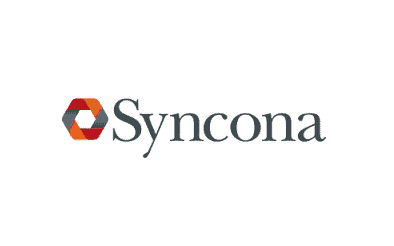
Syncona has invested £34m ($43m) in start-up financing for Quell Therapeutics, a cell therapy company focusing on using T regulatory (Treg) cells to treat diseases of the immune system.
The UK-based life sciences venture capital firm is launching Quell with the aim of developing Tregs therapies for solid organ transplant rejection, autoimmune and inflammatory diseases, with another £1m in funding coming from UCL Technology Fund.
Treg cells are viewed a something of a new frontier in cell therapy, after years of focus on effector T cells that has resulted in approved products, including Novartis and Gilead Sciences approved CAR-T therapies for blood cancers.
Boosting effector T cells is a tried and tested approach for diseases like cancer, but researchers are now looking at the next generation of immune cell therapies for non-cancer diseases, such as type 1 diabetes, rheumatoid arthritis, inflammatory bowel disease, and graft-versus-host disease (GvHD).
Tregs – which have the potential to downregulate the immune system – have clear potential in this area.
Syncona – which has backed a host of UK-based cell and gene therapy firms – says it identified Tregs as “an area of high interest in late 2017 in which to found a company with the potential to be a global leader in this emerging area.”
Quell has been founded in partnership with six leading experts in the Treg field, cell engineering, solid organ transplantation and autoimmune diseases from King’s College London, UCL, and Hannover Medical School, it says.

Elisa Petris
“The foundation of Quell represents an exciting opportunity for Syncona to build the leading cell engineering company with the potential to develop a first-in-class therapy in an innovative field,” said Elisa Petris, Partner of Syncona Investment Management Limited.
“Over the last year, we have worked to bring together a group of world-class leaders in their respective fields, developed a strategy for the business and funded the business to enable it to scale and succeed. We look forward to continuing to work in close partnership with them as we build out the company’s management team and business plan to deliver their goal of becoming the leader in treating conditions of immune dysfunction utilising gene-modified cells.”
Quell is the tenth life science company founded by Syncona, with other UK-based cell and gene therapy companies on its roster including Gyroscope and Freeline. Another of its start-ups, gene therapy specialist Nightstar Therapeutics was bought up by Biogen earlier this year for $800m.
Professor Alberto Sanchez-Fueyo of Kings College London, and founding partner at Quell said: “We are delighted to partner with Syncona to found Quell and are excited to work with the team to develop the next generation of engineered Treg cell therapies. The founder team has a unique cross-section of expertise, built over decades of scientific research and we believe there is a significant opportunity to develop novel therapies for the treatment of solid organ transplant and autoimmune conditions.

Hans Stauss
Hans Stauss, professor of tumour immunology and director of the Institute of Immunity and Transplantation at UCL, said: “Quell brings together the expertise in clinical trials, regulatory T cell biology and gene engineering at UCL, King’s College London and Hannover Medical School. It is exciting to have the backing of Syncona to develop a new class of living medicine to avoid transplant rejection and treat autoimmune diseases.”
It launches into an area that is starting to gather momentum, and with start-ups starting to attract the attention of bigger biotech players.
French biotech TxCell – which focuses on ‘CAR-Treg’ therapies designed to provide finely-tuned immunosuppression for indications like organ transplant and avoid broad immunosuppression that can cause infections and cancer – was bought by Sangamo for around $85m last year.
Previous deals saw Celgene swoop on Delinia and its Treg therapies for autoimmune conditions, paying $300m upfront for the company, while Eli Lilly paid $150m for co-development rights to a Treg therapy developed by Nektar Therapeutics.
The latter two companies are not however focusing on cell therapies. Delinia’s DEL106 acts as an interleukin-2 (IL-2) mutein Fc fusion protein and is designed to up-regulate endogenous Treg function. Similarly, Lilly/Nektar’s NKTR-358 also targets the IL-2 receptor complex to stimulate Treg production.
Still going it alone are companies like Caladrius Biosciences, with a cell-based Treg-based treatment called CLBS03 for type 1 diabetes in phase 2, and EpiVax which has Treg-activating drugs it calls Tregitopes in preclinical development.




